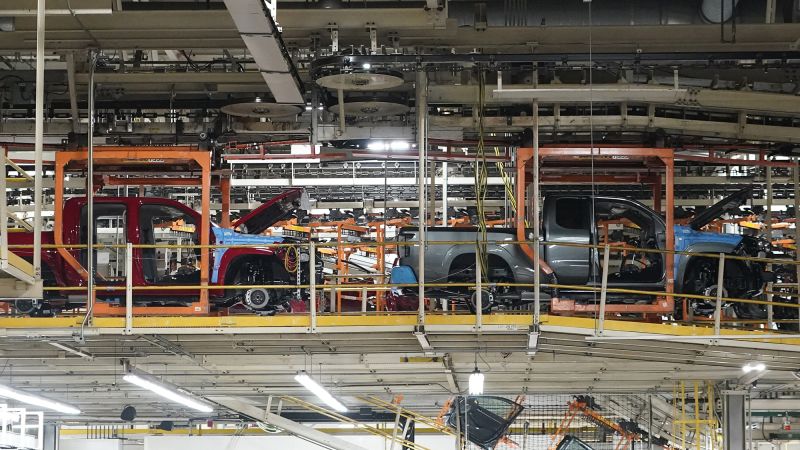Nissan has decided to delay its plans to build new electric vehicles at its Canton, Mississippi factory due to slower-than-expected growth in EV sales. Despite a 2.6% increase in EV sales in the US during the first quarter of 2024 compared to the same period in 2023, the growth rate has slowed significantly from the previous year’s 46.4%. Concerns about the high prices of electric vehicles and the availability of charging infrastructure have impacted consumer interest in EVs, leading to a decrease in customer consideration of these vehicles.
Currently, Nissan offers two EV models in the US, the Leaf compact hatchback, and the Ariya SUV, but had plans to introduce five new EV models at the Canton factory, including two originally scheduled for production in 2025. These new models were expected to include both Nissan and Infiniti vehicles, with Infiniti being Nissan’s luxury brand. However, Nissan has decided to delay the production of these vehicles in Mississippi to assess market demand and maximize opportunities for its brands and supplier partners.
Nissan stated that they are adjusting the timeline for the introduction of the new models to ensure they are brought to market at the right time, prioritizing customer demand. These latest delays were reported by Automotive News, and Nissan still intends to offer a total of 19 EV models globally by 2030. The automaker had previously announced a $500 million investment in the Canton factory to prepare it for producing the new electric vehicles, in addition to the current production of other Nissan models such as the Altima sedan and Frontier, Titan, and Titan XD pickups.
In response to concerns about slowing consumer adoption of EVs, other automakers like GM and Ford have also made adjustments to their production plans. GM slowed down production of its Silverado EV pickup, while Ford reduced the size of a factory it was building to manufacture EV batteries. These decisions reflect the industry’s response to market dynamics and the need to align production with consumer demand and preferences as the EV market continues to evolve and mature.
Overall, the decision by Nissan to postpone its expansion of EV production highlights the challenges faced by automakers in balancing innovation with market demand. The industry’s expectations of accelerating interest in EVs have not materialized, leading companies to reconsider their investment strategies and production plans. Despite the current slowdown in EV sales growth, Nissan remains committed to offering a wide range of EV models globally by 2030, indicating a long-term vision for sustainability and electrification in the automotive industry. By adjusting its timeline and priorities, Nissan aims to position itself strategically in the evolving EV market to meet customer demand effectively and maximize opportunities for growth.


